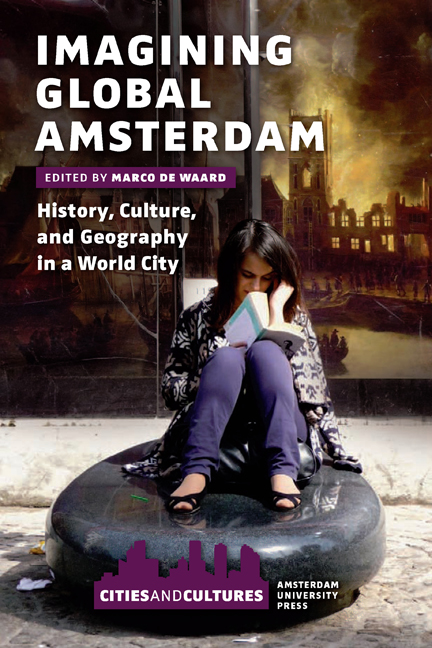13 - Amsterdam Memorials, Multiculturalism, and the Debate on Dutch Identity
Published online by Cambridge University Press: 19 January 2021
Summary
Imagining Amsterdam at the beginning of the twenty-first century naturally implies a focus on the new population groups that have profoundly changed the city's identity since the 1960s. In an increasingly globalized world, it might be tempting to discuss the social impact of immigration exclusively from a deterritorialized, transnational perspective. Approaching Amsterdam as just another ‘station in a worldwide circuit’ (de Swaan 1991, 137), however, runs the risk of overlooking how the city's history shapes a locally specific reaction to the global flows of people, commodities, and goods that can be seen to course through its body. In a globalizing society, the local does not simply become submerged in the global; rather, both dimensions co-exist and create political, social, and cultural tensions that cannot be grasped without acknowledging the interconnections and dynamic interplay between them. In this sense, it seems useful to speak with Roland Robertson of the need for a ‘glocal’ approach to questions of cultural identity and difference in the city (Robertson 1992).
The necessity of a ‘glocal’ approach to contemporary identity questions is reinforced by the demand by new population groups for equal treatment and equal opportunities on the local level. While theories about a ‘nomadic’ (Deleuze and Guattari 1976), ‘in-between’ (Bhabha 1994), or ‘transnational’ (Al-Ali and Koser 2002) existence might seem methodologically appealing for the study of identity in a globalizing world, it may be questioned whether the assumption of perennial deterritorialization that underpins such approaches does sufficient justice to the goals, ambitions, and experiences of immigrant families and their descendants. As Rajagopalan Radhakrishnan (2003) has argued, ‘rather than glorify the immigrant moment as a mode of perennial liminality, the diasporic self seeks to reterritorialize itself’ (324). A similar stance is sometimes taken within the Netherlands: although some authors hold that to believe in a stable Dutch identity in times of globalization is wholly illusory (van der Veer 2000; Etty 2005), certain Dutch authors with a foreign background are demonstrating a new – and often positive – concern with national identity in their work (Dewulf 2008, 19-24). One of them, Kader Abdolah, has even prophesied that globalization, far from leading to a weakening of Dutch identity, will rather lead to its reinvigoration due to the efforts of newcomers to fashion themselves into equal citizens of the nation.
- Type
- Chapter
- Information
- Imagining Global AmsterdamHistory, Culture, and Geography in a World City, pp. 239 - 254Publisher: Amsterdam University PressPrint publication year: 2012

